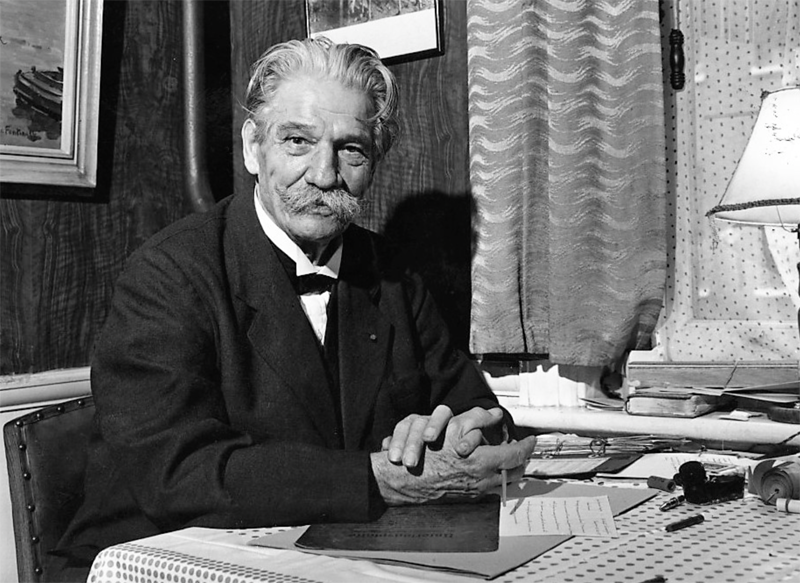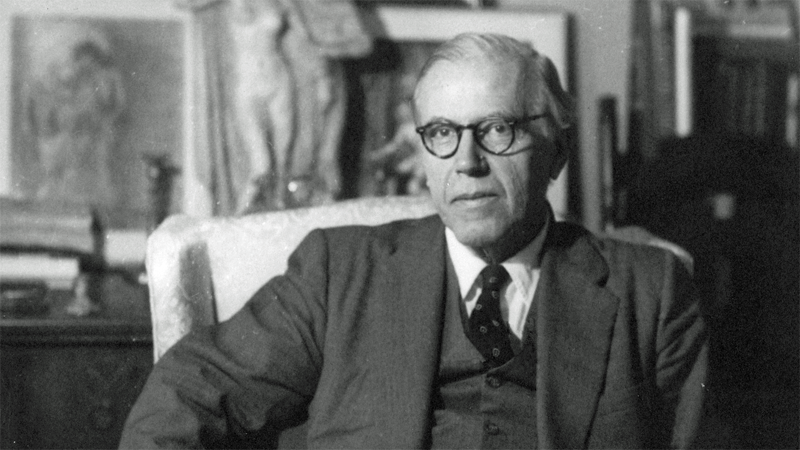By Brian Nixon — In Recognition of Dietrich von Hildebrand’s Birthday on October 12, 1889
Growing up in New Mexico I was aware of Albert Schweitzer (1875-1965) largely because the church our family attended, First Presbyterian’s pastor, Dr. David Poiling, co-wrote a biography on Albert Schweitzer entitled Schweitzer: A Biography. The mythos of Schweitzer loomed large in my young world, his name sounding almost saintly.
In a way, the musician, theologian, and physician acted as a role model, albeit a distant one, throughout my youth. My respect for Schweitzer grew so much that I had pictures of him, accompanied by quotes, hanging on my wall during my later high school years. I learned the organ and started to take my faith seriously. It wasn’t until college that I really began to read Schweitzer. And though—now many years later—I would not agree with all Schweitzer taught; his influence remains.[1]

One of the core concepts found in Schweitzer’s ideology is his ethic, Reverence for life. In his book Civilization and Ethics, Schweitzer writes, “Ethics is nothing other than reverence for life…that good consists in maintaining, assisting, and enhancing life…”[2]
Interestingly, a younger contemporary of Schweitzer, Dietrich von Hildebrand (1889-1977), also valued reverence, particularly as the ruling ethic or value for humans. In Liturgy and Personality Hildebrand writes,
“Reverence is the mother of all virtues, of all religion. It is the foundation and the beginning because it enables our spirit to possess real knowledge, and primarily the knowledge of values. It is that fundamental attitude toward being in which one gives all begin the opportunity to unfold itself in its specific nature, in which one either behaves as its master, nor acts toward it in a spirt of familiar conviviality…In this right and appropriate attitude, this affirmation free from obtrusiveness, this silent, contemplative disposition toward being as the being, the world begins to discourse itself in its entire dept, differentiation, and plentitude of value.”
Key to understanding von Hildebrand is the classical understanding of being, the notion that something exists as a gift from God. And though not explicitly stated in Schweitzer, I suggest that he would concur, but, possibly, with a caveat: reverence for something living that exists.
For von Hildebrand, reverence conveys a respectful attitude towards being, an appreciation of existence.[3] Furthermore, reverence is the attitude that enables a person to grasp values.[4] Consequently, if a person has an attitude of gratitude, he or she will be open to other life-altering virtues such as faithfulness, truth, beauty, goodness, etc. Put another way, reverence gives the capacity “to make space for values.”[5]

Hildebrand stresses the importance of reverence by writing, “Without a fundamental attitude of reverence, no true love, no justice, not kindliness, no self-development, nor purity, no truthfulness, are possible; above all, without reverence, the dimension of depth is completely excluded.”
“Excluded” is a strong word. In other words, reverence is the key to unlock the doors of virtue.
Hildebrand summarizes the importance of the value by writing, “Reverence as a basic moral attitude is… [the] basis for the right attitude of men towards themselves, their neighbors, to very level of being, and above all to God.”[6]
Professor Thomas Howard underscores Hildebrand’s “basis” by writing, “Reverence is the essential basis for such a perception of values, and for a true relationship with the whole realm of values…with the Absolute, the supernatural, and the divine.”[7]
The importance of reverence to Hildebrand’s thought as the “basis”—the foundation, source, and beginning—of all values, both natural and supernatural, is the primary responsibility and ability for humans to contemplate and consider, both of life and God.
Thus, for Hildebrand, and I suspect, Schweitzer, reverence affords humans to ponder—and appreciate—all of life, physical and non-physical.
What exactly is reverence?
The word reverence is taken from the Latin, reverential: to stand in awe, respect, and admire.
The Greek language has a similar word, used both in Greek antiquity and the New Testament. The word is eusebeia. Eusebeia means awe and reverence in thought and action.[8]
The Oxford English Dictionary defines reverence as a “Deep respect, veneration, or admiration of someone or something, esp. a person or thing regarded as sacred or holy.”[9]
Intertwining Hildebrand and Schweitzer thought, reverence is a condition of the mind and soul whereby one stands in awe of existence, a deep appreciation, particularly of life, and seeks to value, enhance, and uphold it as a gift from God.
With our world at a low reverential tone, is it time to turn up reverence? Should we pray for a reverential rebirth, a revival of Biblical reverence? Is reverence the modern Renaissance we need?
It’s hard to say, but heeding the necessity for reverence in our world is a riveting thought, deserving real action.
[1] For a stellar summary of Schweitzer’s thought and theology, I recommend a mentor of mine, Dr. John Warwick Montgomery’s audio teaching, “Albert Schweitzer and Modern Theology.”
[2] To read a fuller treatment of Schweitzer’s quote, see John Naish’s translation of the section: http://www.animal-rights-library.com/texts-c/schweitzer01.htm.
[3] See Hildebrand, von Dietrich, The Art of Living, p. 6.
[4] Ibid, p. 3.
[5] Ibid, p. 6.
[6] Ibid, p. 8.
[7] See Howard, Thomas, The Night is Well Spent.
[8] See Strong’s Number 2095 and 4576.
[9] See Oxford English Dictionary, “Reverence,”: https://www.oed.com/search/dictionary/?scope=Entries&q=reverance.



